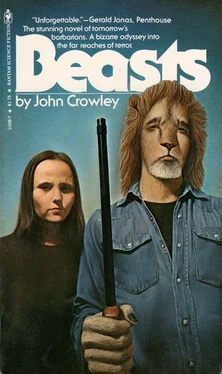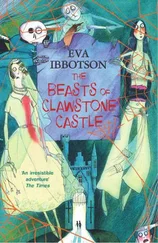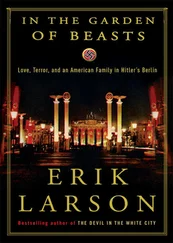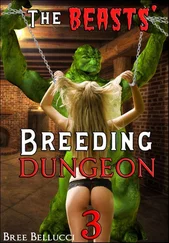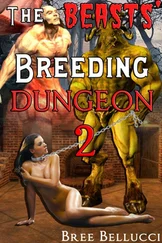Once inside, however, in the warm, lamplit emptiness, it took him again head to toe. He dropped the useless hawking gear. He would find, capture, hold, nothing, no one. He climbed the stairs, almost unable to bend his knees, and went to Sten’s room, He didn’t turn on the light. He smelled the place, the discarded clothing, the polished leather, the books, Sten, He felt his way to the narrow bed and lay down, pressing his face into the pillow, and wept.
All the wild things fly away from me, he thought now, in the crook of the tree by the empty river. Every wild thing that I love. If they don’t know how to fly, I teach them.
Wiping the cold tears from his beard, he climbed down from the tree and stood in the suddenly pointless encampment. Stove, tent, supplies, canoe. Shirt drying on a branch. Camera, recorder, notebooks. He had tried to make a home in the heart of the wild, to be quiet there and hear its voice. But there was no home for him there.
Methodically, patiently, he broke camp. Like the geese, but far more slowly, he would go south. Unlike them, he was free not to; and yet he knew there was nothing else he could do.
The last truck left Caddie off at an interchange a mile or more from the center of the city. The driver pointed out to her the slim white needle, impossibly tall, just visible beyond the river, and said this was as close as he came to it; so she swung down from the cab and began to walk toward it.
It had been terrifying at first to stand alone beside the vast spread of naked highway, waiting for the trucks. For a year she had rarely been out of the company of the pride, had forgotten, if she’d ever known, how to discount the terror of this inhuman landscape, stone and sounds and vast signs and speed. She wanted to run from it, but there was no one who could do this but she; certainly none of the leos, and Meric was known from the tape in which she had appeared only briefly. So she had stood waiting in a thin rain for the trucks — there was almost no other traffic — holding out her thumb in the venerable gesture. She recoiled when they bore down on her and barreled past, wrapped in thin veils of mist that their tires pressed out from the road’s wet surface; but she stayed.
When at last one, with a long declension of gears, slowed and stopped fifty yards down from where she stood, her heart beat fast as she ran to it. She felt for the gun in her belt, under her jacket; she felt her breasts move as she ran.
They were only truck drivers, though, she came quickly to learn, the same she had dealt with every week in Hutt’s bar. They talked a lot, but that didn’t bother her. Only once did she feel compelled to mention the gun, casually, in passing: a person has to protect herself.
In a way, it was the small talk that was harder to answer: Where are you from? Why are you going to Washington? Who are you?
Looking for a relative. Promise of a job. Come from, well, north, Up there. Because she couldn’t tell them that she had come hundreds of miles at the direction of the fox to try, somehow, to free the lion.
The last truck moved off, ascending stately through its gears. She turned up her jacket collar — it was still damp autumn here, not winter, as it was up north, and yet penetrating — and went down into the maze of concrete, trying to keep the white needle in sight.
She was nearing the end of the longest year of her life. It had been distended by loss, by suffering — by death, for it seemed to her that since she had seen she would die, in the mountains, and had accepted that, that she had in fact died; and when the ghostly sleds had appeared, creeping through the blowing snow with supernatural purpose and a faint wailing, it had taken her a time to understand that they had not come to signal the death she awaited but to thrust her back into life.
And then she had killed a man, an eternity later, when they had at last come down out of the mountains. A Federal man, one of the black coats, who still slogged through mud implacably toward her in dreams. That was a long moment, a year in itself. Yet it took her less time than it had taken Painter to kill the man who had come on them in the cabin in the woods, back at the beginning of her life.
Moving northwest with the widowed pride, always deeper into wilderness and solitude, always waiting for something, some word of Painter, some word from the fox, she felt her time expand vastly. Grief, waiting, solitude: if you want to live forever, she thought, choose those. In a way Caddie perceived but couldn’t express, the pride did live forever, the females and the children: they lived within each moment forever, till the next moment. They took the same joy in the sunrise, hunted and played and ate with the same single-minded purpose, as they had when Painter had been with them; and their grief, when they felt it, was limitless, with no admixture of hope or expectation. She had explained to Meric: leos aren’t like Painter, not most of them. Painter has been wounded into consciousness, his life is — a little bit — open to us, something shines through his being which is like what shines through ours, but the females and the children are dark, You’ll never learn their story because they have no story. If you want to go among them, you have to give up your own story: be dark like they are.
Caddie by now knew how to do that, to an extent, but Meric would never learn it, and in any case it wasn’t allowed to either of them then, because with Painter gone they two must act as the bridge between the pride and the human world it moved through and lived in, They had to spend Reynard’s money in the towns, they had to learn the safe border crossings, they had constantly to think . Caddie forced herself to struggle against the wisdom of the females, fight it with human cunning for their sakes, forced herself to believe that only by keeping her head above the dark water could she help save them, when all she wanted to do was give up the burden of cunning and sink down amid their unknowing forever. No: only to Painter could she resign that burden.
Then at one of the prearranged mail drops had come the summons from the fox, Suspicious, anxious, unable to believe that Reynard could really know all he pretended to know, she had nevertheless left Meric to shepherd the pride and followed her instructions. It was all she could do.
She soon lost sight of the monument. The littered, shabby streets urged her on, striking purposefully through the buildings but leading nowhere except to further streets. Alarmed by acrid odors that had come to mean danger to her, she began to see why Painter had smoked tobacco in towns. She walked aimlessly among crowds that seemed bent on pressing business, hurrying people with eyes intent, lugging heavy bags that perhaps they were carrying somewhere or perhaps had stolen from somewhere they were eager to get away from. Caddie thrust her hands into her pockets and walked on, unable to catch anyone’s eye or hold his attention long enough to ask a question.
At a convergence of streets, stores were lit up, and the sallow globes of a few unbroken street lights were on. Lines of people stood patiently waiting to be let in one at a time to buy — what? Caddie wondered, In one barred store window, televisions: ranks of them, all showing the same image differently distorted, a man’s head and shoulders, his mouth moving silently. Then, in an instant, they all changed, to show a street like this one. A black three-wheeled car. Two men in dark overcoats got out, looking wary and tired. Between them a third, a tiny limping creature, in a hat whose brim hid him from the camera, but whose manner revealed him to Caddie. She could almost smell him.
She went to the door of the store. A burly black guard, armed, stood in the doorway, looking bored. Caddie slipped past him, expecting to be seized, but the guard seemed not to care.
Читать дальше
